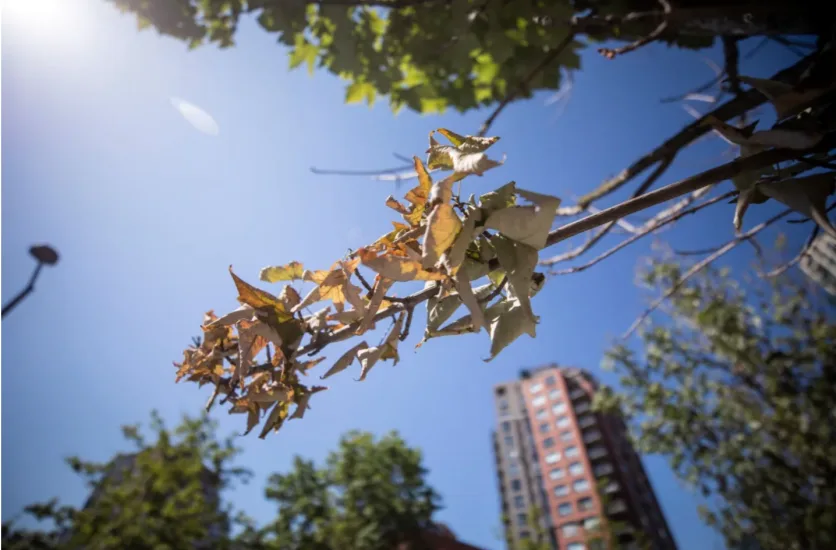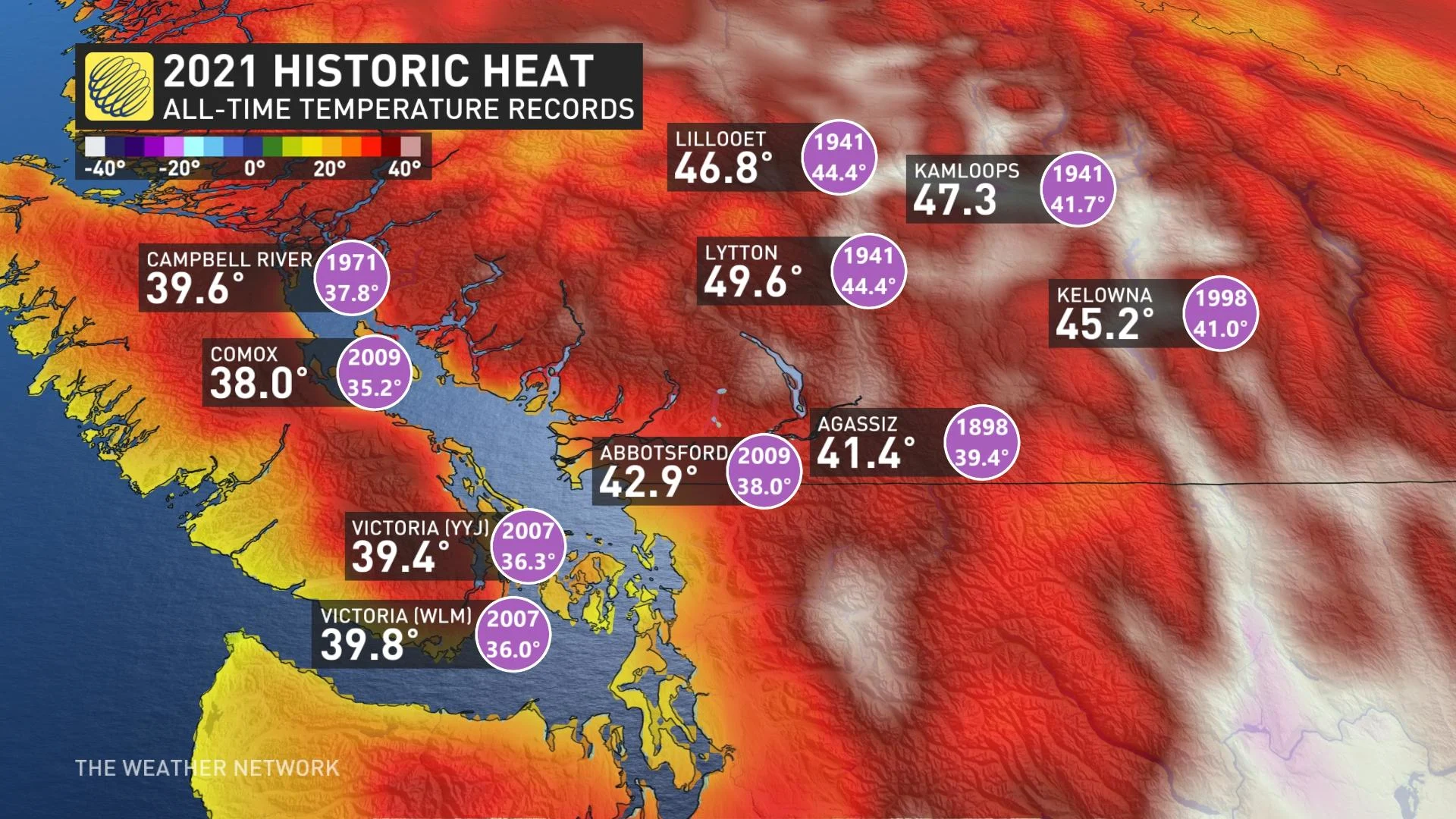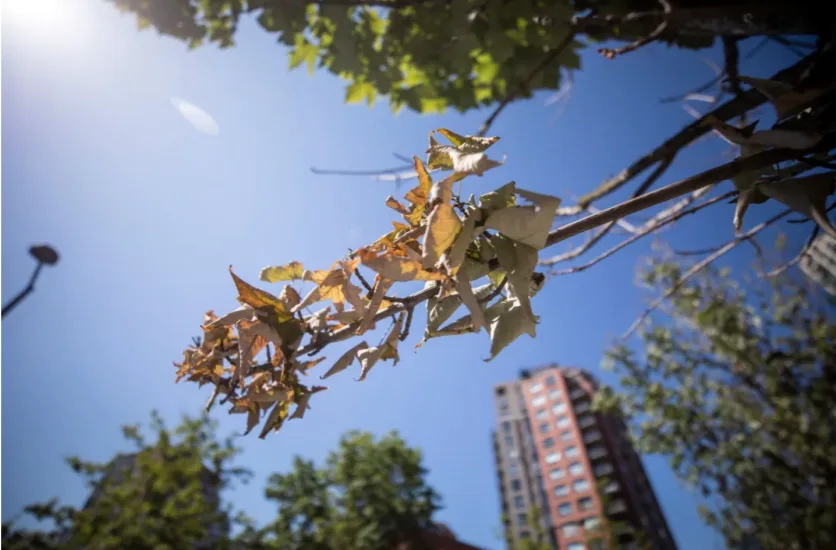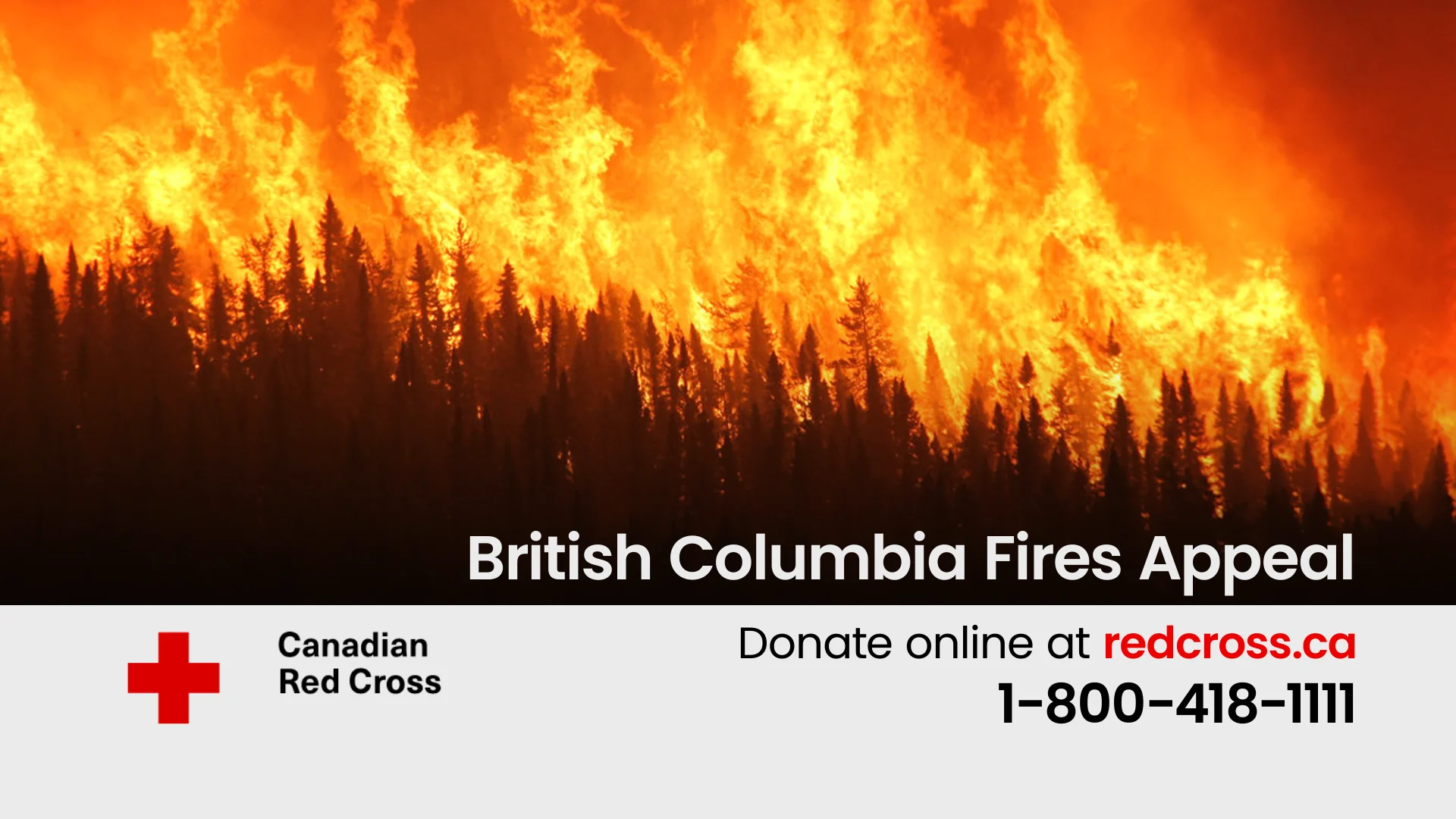
Vancouver trees dry out as heat wave continues to take its toll
British Columbia's unprecedented heat wave and drought-like conditions may be what is causing some Vancouver trees to shed their leaves this week, a scientist says.
Social media was filled with pictures of trees drying out on Vancouver's streets last week.
Leaves on trees turn brown and drop off as a defence mechanism plants use to conserve water under dry conditions, according to the director of parks for the City of Vancouver.
While June saw an initial bit of rainfall, the province's record-shattering heat wave meant no rain on the South Coast for most of the month and into the first week of July.
RELATED: A by-the-numbers recap of BC's record-shattering heat wave (Records as of June 29)
Stephen Sheppard, a professor of forestry at the University of B.C., says cities should be proactive about watering their urban trees and refilling tree water bags.
"We probably need some better co-ordination and, frankly, support from local citizens, just to keep this number of trees going," he said.
"It's a huge task for any city to water all the street trees over a period of two or three weeks of drought."
FOREST MANAGEMENT PLANS NEED TO ADAPT
Sheppard says municipalities need to account for more heat waves in the coming years as part of their urban tree management plans.
Typically, municipalities expect to water new plants and saplings regularly. However, Sheppard says that older and more mature trees have been particularly affected by recent drought conditions.

"I think what we're seeing with these trends in cities like Vancouver, Surrey, and others that are looking very hard at getting ready for greater urban heat, is that they are going to need larger budgets in the future," said Sheppard.
WATCH BELOW: THREE SIGNS IT'S TIME TO TRIM THAT TREE IN YOUR YARD
The City of Vancouver's Urban Forest Strategy says that Vancouver's trees, whether planted along the road or in parks, highlight the role of tree canopies in cooling down parts of the city.
During the peak of the heat wave in Vancouver last week, this aspect of tree cover was highlighted as Vancouver's poorest neighborhood had far fewer trees and experienced a "heat island" effect as a result.
"Trees are nature's sort of air conditioning and the cheapest way of cooling neighbourhoods," said Sheppard.

Urban planning must take heat waves into account going forward, according to Stephen Sheppard, a professor at UBC. (Ben Nelms/CBC)
Vancouver's urban forest strategy also notes that cherry and maple trees are "not expected to do well" as the weather warms due to climate change.
Sheppard shares this concern, saying that in his anecdotal experience, maple trees have been dropping more leaves than usual this year.
The maple is Vancouver's most common tree, accounting for nearly 25 per cent of all trees in the city. Cherry trees are the second-most common at around 20 per cent.
WATCH BELOW: SURPRISINGLY NUTRITIONAL PLANTS FOUND IN VANCOUVER'S STANLEY PARK
Sheppard says species that are not used to hot climates, such as the province experienced during the peak of the heat wave, might see particular "damage" during the coming years.
Vancouver and Surrey have both committed to planting more diverse species as part of their urban tree plans.

For now, Sheppard says residents should not hesitate to water trees and plants that look particularly dry.
"We need to save them so that they can save us from the heat waves," Sheppard said.
Residents in Vancouver can also call 311 or use the VanConnect app to report trees in need of water to the park board.
To listen to Stephen Sheppard's interview on CBC's On The Coast, click here.
This article, written by Akshay Kulkarni, was originally published for CBC News.





